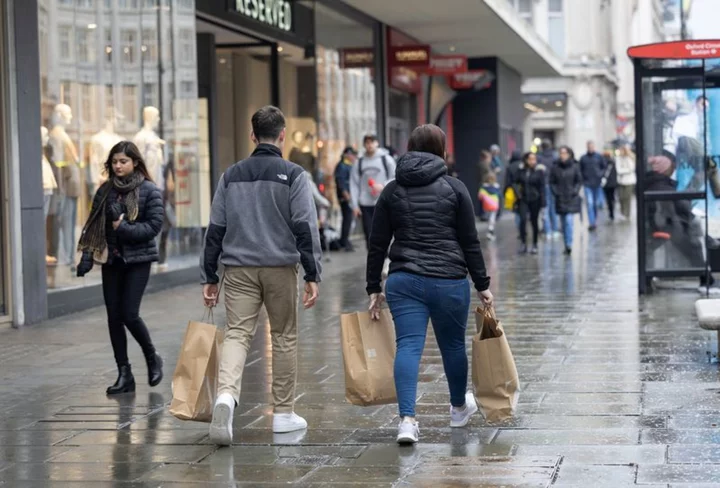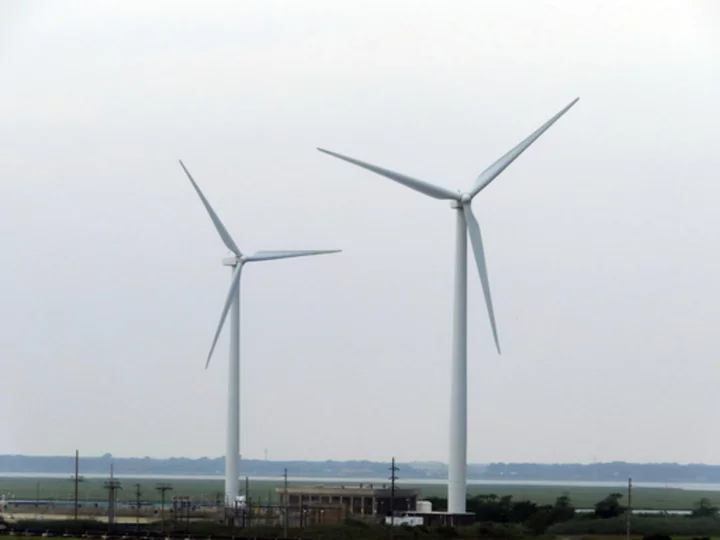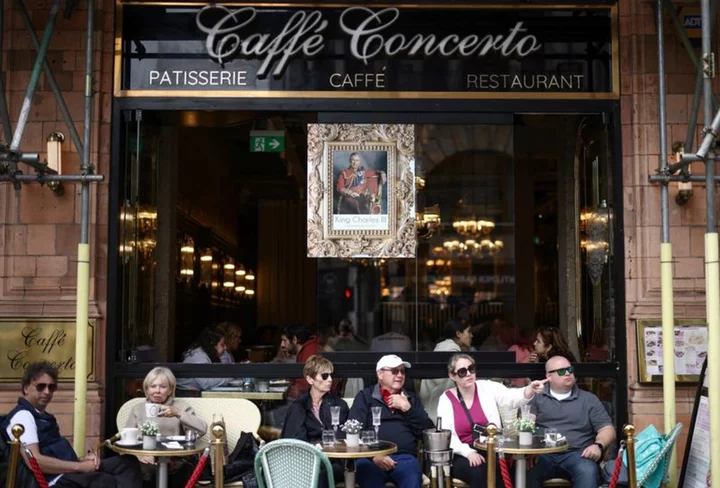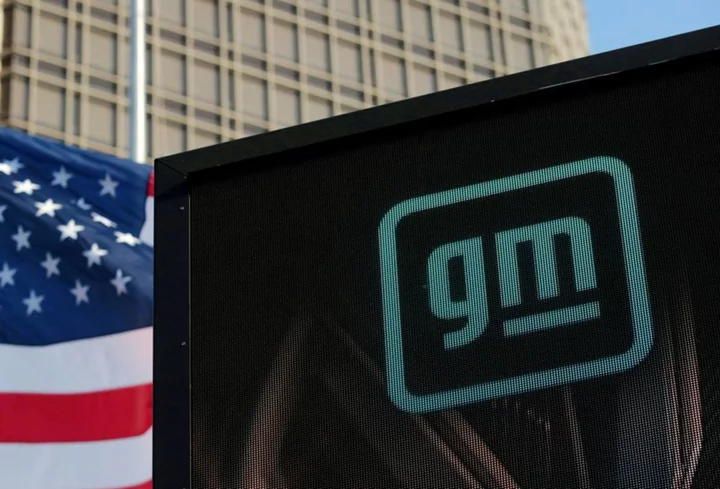By William Schomberg
LONDON (Reuters) -British consumers picked up the pace of their spending last month and sales volumes over the three months to April grew by the most since mid-2021, according to official data that suggested limited impact from the surge in inflation.
Sales volumes in April rose by a stronger-than-expected 0.5% from March when they slumped by 1.2% as unusually heavy rain kept shoppers at home, the Office for National Statistics said on Friday.
Economists polled by Reuters had forecast a 0.3% rise.
In the February-to-April period, sales were up by 0.8% from the previous three months, the biggest such increase since the three months to August 2021.
"April saw a surprising uplift in retail sales despite ongoing inflationary pressures," Oliver Vernon-Harcourt, head of retail at Deloitte, said.
"The economic environment remains incredibly tough for many, but consumer confidence is slowly improving from record lows seen in the past year."
Sterling rose against the U.S. dollar and the euro after the data was published.
Emma Mogford, a fund manager with Premier Miton Monthly Income Fund, said rising wages were offsetting some of the cost-of-living squeeze.
"However, any increase in unemployment later in the year could dampen confidence once more," she said.
Price growth slowed to 8.7% in April from 10.1% in March, but that was smaller than expected and measures of underlying inflation rose.
Bank of England Governor Andrew Bailey said on Wednesday inflation could prove "sticky and stubborn" in months ahead.
There were some reminders in Friday's figures of how the cost-of-living crisis is affecting household spending.
Retail sales volumes in April were 3.0% lower than a year earlier, a bigger fall than forecast in the Reuters poll.
Food sales were down by an annual 2.7%, although that was the second-smallest fall since the end of 2021.
ONS Chief Economist Grant Fitzner said jewellers, sports retailers and department stores all had a good month in April.
"Despite continued high food prices, supermarkets also recovered from the fall in March. However, these were partly offset by a drop in the amount of fuel sold, despite prices also dropping," Fitzner said.
On a monthly basis, food sales rose by 0.7% after falling 0.8% in March.
Retailers said there were signs that a wave of strikes by public sector workers in April was linked to the 2.2% drop in fuel sales volumes in the month, an ONS official said.
(Writing by William SchombergEditing by William James and Andrew Cawthorne)









